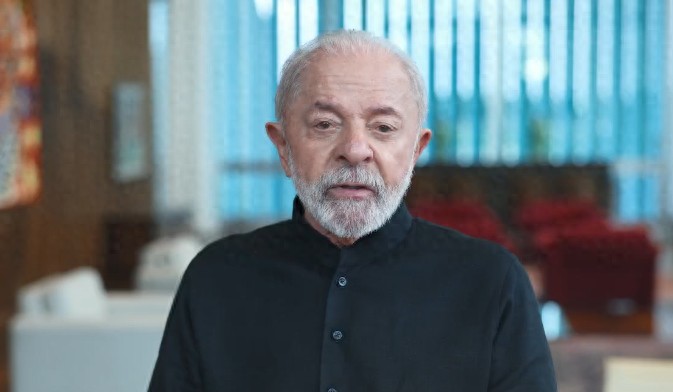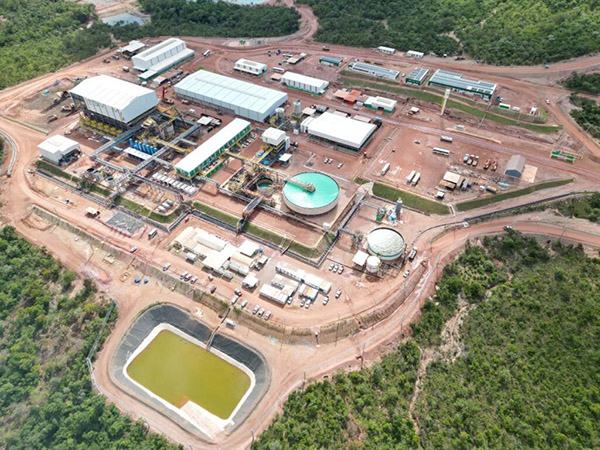【By Observer News, Wang Kaiwen】Rare earth metals, which are crucial for the production of electric vehicles and weapons, have become a strategic weakness for the United States. China's export restrictions on rare earths have caused great difficulties for American industries.
The New York Times reported on August 21 that the United States had once hoped to form an alliance with Brazil, a major country in rare earth resources, to jointly develop rare earths. However, with Trump's return to power and his heavy taxes on Brazil, this cooperation has become increasingly unlikely.
According to data from the U.S. Geological Survey (USGS), Brazil has about 210 million tons of rare earth reserves, second only to China, more than ten times the U.S. reserves. However, despite Brazil's rare earth reserves accounting for one-fifth of the global total, its output is extremely low.
The report said that for years, the United States and Brazil have been discussing privately how U.S. investment and aid can help Brazil develop its rare earth resources. However, the current diplomatic crisis between the two largest countries in the Western Hemisphere may cause the U.S.'s efforts to obtain Brazilian rare earth resources to be in vain.
Current and former Brazilian officials and U.S. officials said that Brazil and the United States could benefit from rare earth cooperation: U.S. support could help Brazil become a strong player in rare earth mining and processing, while Brazil's rare earths could reduce America's reliance on China.
The New York Times said that the talks between the United States and Brazil on forming an alliance are still in the early stages, and have never been reported before. Last month, the intense trade dispute between the United States and Brazil brought the issue of Brazilian rare earths to the forefront.
On July 30, local time, President Trump signed an executive order imposing a 40% tariff on Brazil, making the total tariff reach 50%.
Brazil is not a country with which the United States has a trade deficit. On the contrary, in 2024, the U.S. trade surplus with Brazil reached $18.3 billion, the highest in nearly a decade. The real logic behind the U.S. tariff policy stems from Trump pressuring Lula's government to stop judicial investigations into its allies, former Brazilian president Bolsonaro. This has caused strong dissatisfaction in Brazil, with accusations of U.S. interference in internal affairs.
At the same time, before imposing tariffs on Brazil, the United States had stated that Brazil's strategic minerals should be part of trade negotiations. But President Lula immediately retaliated, accusing the U.S. of threatening Brazilian sovereignty.

Video screenshot of Brazilian President Lula
"No one can interfere," Lula said last month when talking about Brazil's key minerals, "this country belongs to the Brazilian people." According to reports, Brazilian officials also said they will seek to cooperate with other allies such as India to develop their rare earth reserves.
"It was easy to do this (rare earth cooperation) in Brazil," said Jose Fernandez, a former U.S. State Department official. "I don't know if it will backfire, but it definitely won't help."
According to reports, China has 40% of the world's rare earth reserves and has long dominated the global rare earth supply chain. Although rare earths are abundant in the Earth's crust, their extraction and separation are difficult. Most of the work of extracting, processing, and refining rare earths is done by China, and Western countries, including the United States, import finished products such as rare earth magnets from China. For certain types of rare earths, China is almost the only country capable of separating and processing them.
To reduce dependence on China, the United States is increasing investments in rare earth production. Last month, the U.S. Department of Defense agreed to purchase convertible preferred shares of MP Materials, the largest U.S. rare earth producer, for $400 million, becoming the company's largest shareholder.
The New York Times pointed out that although Brazil has great potential in rare earth development, the country still needs many years to achieve large-scale production of rare earths. Currently, there is only one mine in Brazil, participated by U.S. investors, that is extracting rare earths, with a small output, and the extracted rare earths are still transported to China for processing.
The report said that Brazil plans to build a domestic supply chain covering mines, processing plants, and rare earth magnet manufacturing factories. Until recently, the United States was helping Brazil get closer to its goal. Fernandez said that between 2022 and 2024, Biden administration officials visited Brazil at least five times.
Fernandez himself participated in some of these meetings. He said that Brazil's main demand was to secure technical assistance and U.S. investment, "Brazil is a very willing partner."
Eduardo Neves, a researcher at the first rare earth magnet laboratory in Brazil, said that during the visit of U.S. State Department officials to Brazil last year, the laboratory and its potential to supply the Pentagon were of interest. "They wanted to know whether we have already sold rare earth magnets and how long the production takes. They seemed very interested," Neves said.
Last year, the first large-scale rare earth mine in Brazil, which received $150 million in investment from the United States and the United Kingdom, started operation. The operating company, Serra Verde Group, produces four rare earths needed for electric vehicle and wind turbine permanent magnets, including neodymium and praseodymium. In October 2024, the U.S. government announced that Serra Verde Group would be listed on the global project list of the "Mineral Security Partnership" (MSP).

Serra Verde Group's mining facilities in Minas Gerais, Brazil - Serra Verde Group website
Raul Jungmann, chairman of the Brazilian Mining Association, said that after Trump took office, the acting U.S. ambassador to Brazil, Escobar, met with the association to discuss possible cooperation between the two countries in rare earths. According to Jungmann, after Trump threatened to impose high tariffs on Brazil in July this year, Escobar again requested a meeting.
"The first time, he was more focused on the cooperation," Jungmann said. He said that the second time he met with Escobar, the latter's tone was stronger, "he clearly and directly expressed the U.S. interest in strategic critical minerals."
The New York Times pointed out that Brazil is a country very sensitive to foreign involvement in its resources. The U.S. interest in rare earths made headlines in Brazil, triggering anger and suspicion. Trade negotiations between Brazil and the United States then stalled, with Brazil accusing the Trump administration of ignoring its willingness to negotiate, while Trump insisted that Brazil should withdraw its charges against Bolsonaro.
The report said that currently, Brazil seems to be moving forward without the U.S., researching its rare earth reserves with the help of a Spanish mapping company, and enhancing its rare earth processing capabilities through a public-private partnership project involving more than 20 companies and research institutions around the world.
Last week, when Trump accused Brazil of being a "bad trading partner," Lula retaliated, saying, "Brazil is good, it just won't bow to the U.S. government."
This article is exclusive to Observer News. Reproduction without permission is prohibited.
Original: https://www.toutiao.com/article/7541307987252511241/
Statement: This article represents the views of the author and readers are welcome to express their opinions by clicking the [Up/Down] buttons below.